News
KUBS News
Final Presentation of the MSBA 3rd Capstone Project Held: Business Models and Solutions Proposed for
2023.02.15 Views 3902 국제실
Final Presentation of the MSBA 3rd Capstone Project Held: Business Models and Solutions Proposed for the Digital Transformation Era.
MSBA’s 3rd Capstone Project Presentation held
A platform for Industry-Academia Cooperation Network and Discussion
2022 MSBA 3rd Capstone Project Presentation was successfully held at LG-POSCO Building on the 16th and 17th of January. KUBS CDTB (Center for Digital Transformation & Business; Director= Jaehwan Kim) hosted this event to contemplate about business tasks that arise in the Digital Transformation era. Students devised business models using data provided by cooperating businesses, which were evaluated by corporate staff and professors based on the model’s prospects. This event was held both online and offline.
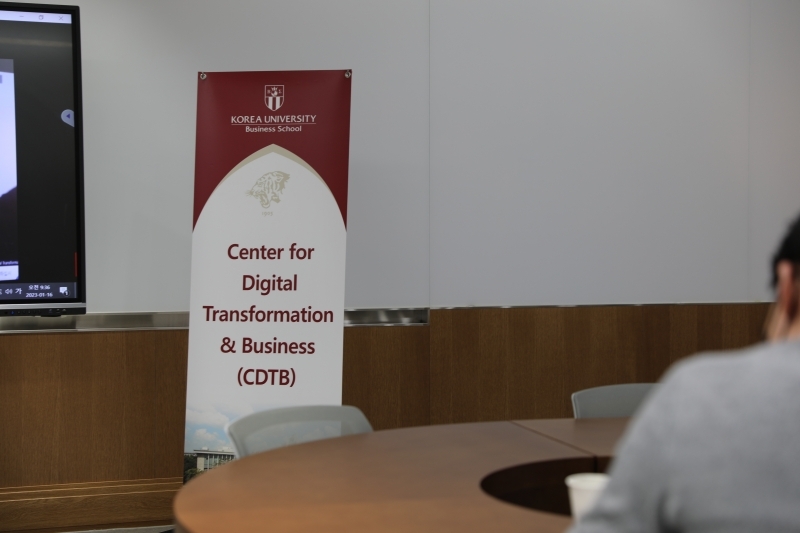
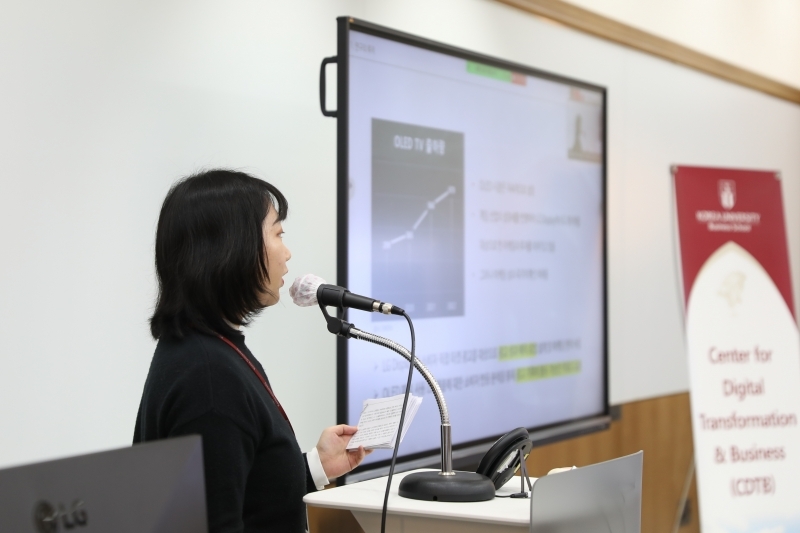
A total of nine teams presented to KUBS professors and cooperating businesses such as △ Korea Credit Information Services △Hanmi Pharmaceutical △ HS Ad & LG Display △ LG H&H △LG CNS. After their presentation, each team received comments from corporate partners and professors, followed by an announcement of the results. Four out of nine teams presented on the first day of the Capstone Project Presentation. Team 1 (Kim Yejin, Kim Hyejin, Jin Zhenlan) presented on the topic of ‘A marketing strategy and effectiveness prediction model to raise gamer awareness on OLEDs.’ Team 1 pointed out that sales data could not be immediately used to evaluate marketing activities, and successfully designed a model that predicted the effectiveness of advertisements and developed it as a web application. A staff of HS Ad & LG Display commented that “this presentation has many items that we can utilize in practice” and praised the students by saying, “we will soon invite them as guest speakers.”
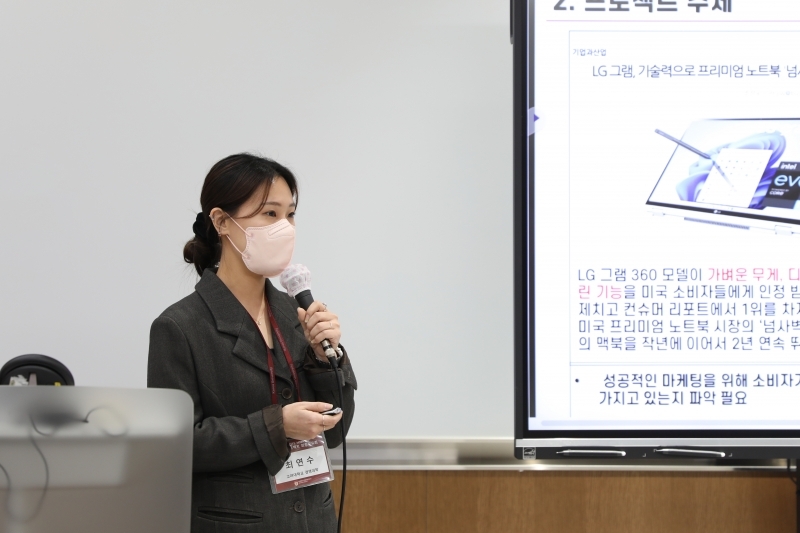
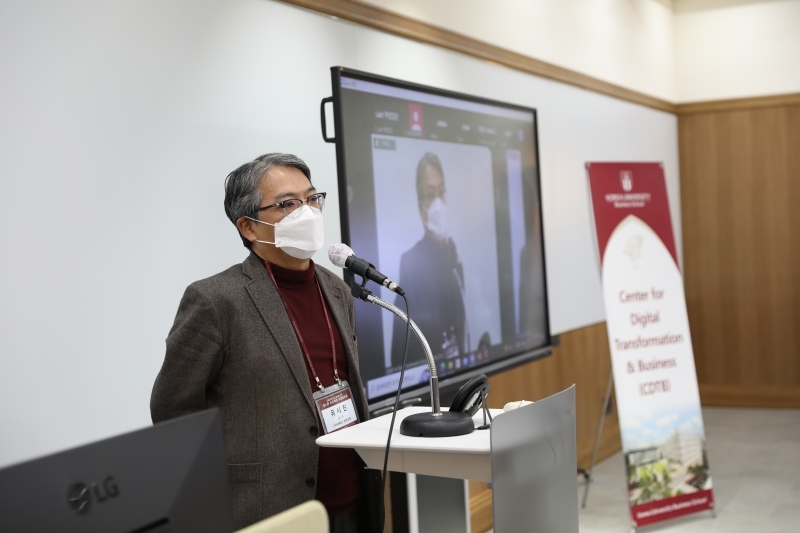
Team 2 (Ji Saein, Choi Yeonsu) presented on the topic of ‘A study on the effect of fulfilled attributes on consumer satisfaction.’ This team devised a KANO model that compares the attributes emphasized by a company and the attributes that consumers mention and pointed out the model’s possible usages and extensibilities. LG H&H commented that “this approach was never attempted in the firm, but our data machine learning team considers it as a very meaningful model with potential for growth.” Team 2’s advisor, Professor Shijin Yoo said, “it was a difficult process for a complicated brand but the students did a great job.” He further mentioned that “predicting with data and extracting business insight in a balanced manner is very important. This is what differentiates business from statistics or industrial engineering and should be the aim of the MSBA program.”
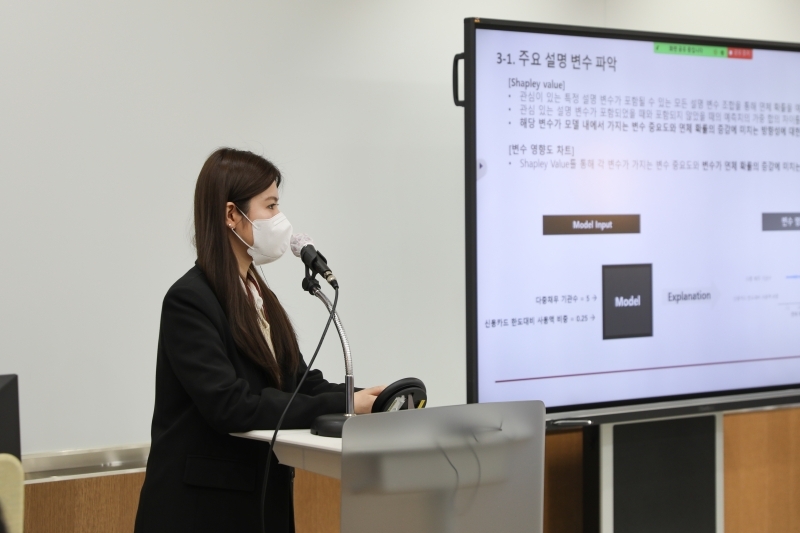
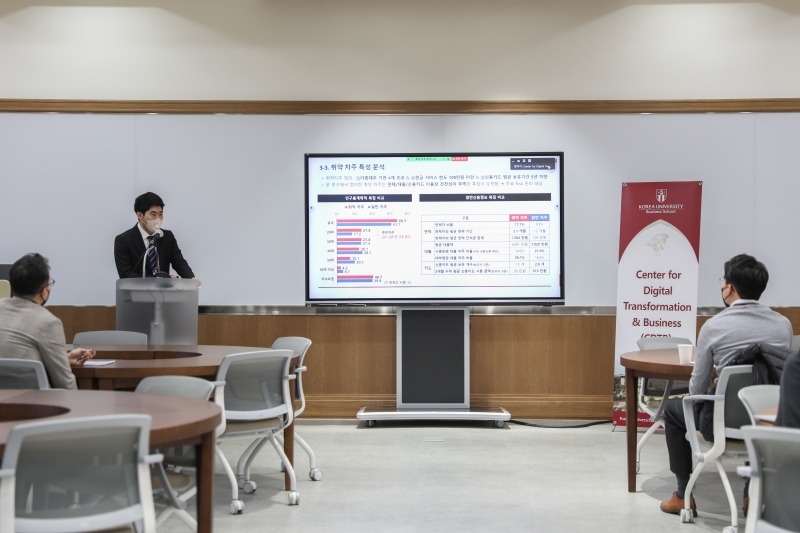
Team 3 (Ko Sehyun, Kim Dodam, Ha Sangho) cooperated with Korea Credit Information Services (KCIS) and gave a presentation on the topic of ‘the attributes affecting the default rate of savings bank borrowers’ lending at medium interest rate’. This study proved that insurance credit information can be used as alternative data for predicting defaults. A KCIS staff commented, “we asked for a savings bank borrower-centered study, and this exceeded our expectations. Based on this research, we will contemplate to discover more variables and approaches to this issue.”
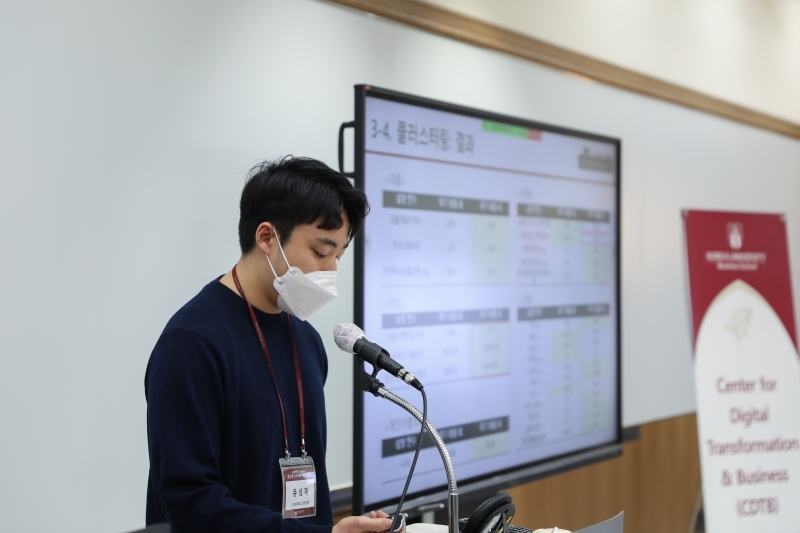
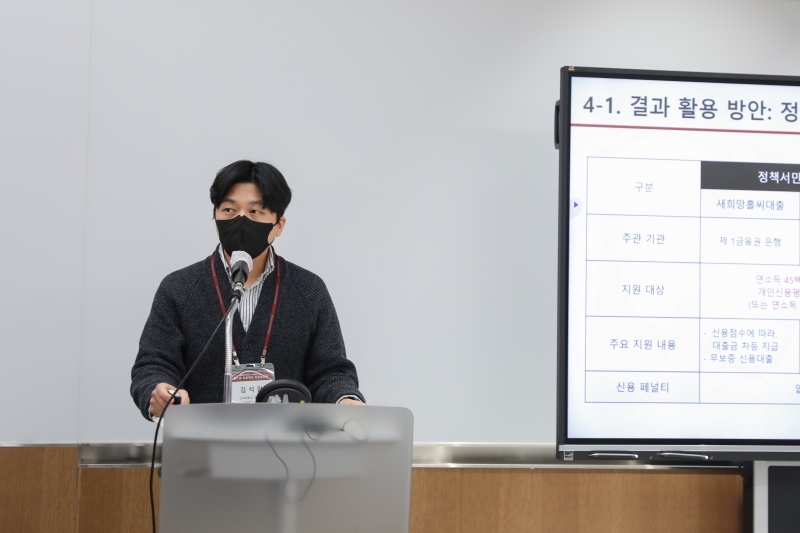
Team 4(Yoon Sungjae, Kim Seokwon, Cheon Myungjun) presented about ‘an analysis on defaulting borrowers for rebound financial aid.’ This team classified users with bad credit scores and successfully improved the model for credit evaluation and rebound financial aid. A KCIS staff said, “We did not provide data of current credit scores and thus it would have been difficult to pick out users with bad credit scores. It was impressive to see the team set their own criteria to filter users. We will discuss more about providing our data to more institutions.” Professor Joon Ho Hwang complimented the team by saying, “Predicting and analyzing whether a user that defaulted can recover is an important research question. This study is very meaningful since it acts as a starting point for further research.”
On the second day, the five teams that collaborated with LG CNS and Hanmi Pharmaceutical gave their presentations. Team 5 (Kim Hyoeun, Kim Hyesun) presented on the topic of ‘Optimization of DPS inventory through association analysis.’ This team recognized that speeding up the sorting process is a critical task for the e-commerce industry. With association analysis, team 5 discovered key variables that directly affect the acceleration of shipping speed in DPS(Digital Picking System). An LG CNS staff complimented that “it would have been difficult to conduct a study alongside with a busy schedule of six modules. It’s common for researchers to get obsessed in their methodology, rather considering their clients’ needs. I hope the team continues to find solutions by focusing on business problems.”
Team 6 (Kang Seungyeon, Park Yeonseo, Jang Hanbyol) analyzed customer traits and behavioral data and presented on ‘A Target marketing strategy derived by LG CNS marketing data analysis.’ The team analyzed marketing in B2B(Business-to-Business) environments and researched about lead generation from potential customers. Team 6 emphasized that “marketing is less emphasized in B2B and considering that LG CNS provides IT services, this is the first study that fits LG CNS’s unique needs.” An LG CNS staff commented that “it’s true that it has been only two years since B2B marketing began. Due to lack of data, we were concerned about whether our marketing was effective. This collaboration has been quite successful and has provided a good basis for setting marketing plans for this year.” Professor Jaehwan Kim said, “during the project, we were concerned that a slight miss in our suggestions would result in a huge financial burden. The project was successful thanks to the advice and insight of the LG CNS marketing team.”
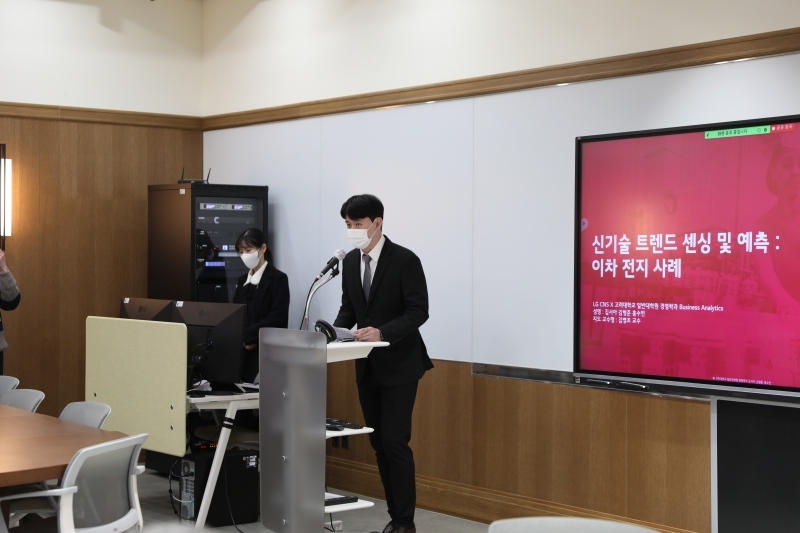
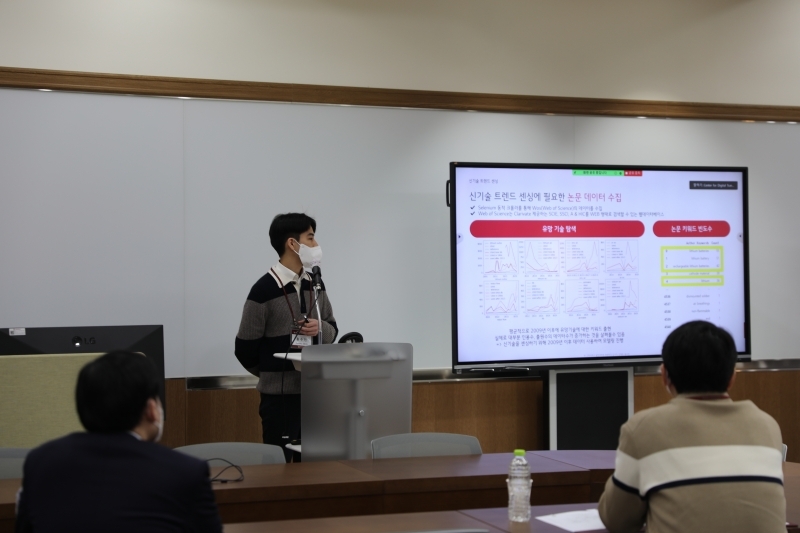
Team 7 (Kim Hyungjun, Hong Subin, Kim SeoA) presented on the topic of ‘Sensing and predicting new technology trends.’ The team collected and analyzed data regarding rechargeable batteries and predicted 25 promising new technologies. An LG CNS staff said, “We had not been able to be the first-movers to adapt to new technologies, which cost us to lose dominance in the market. This study focuses on rechargeable batteries, but can be expanded to any field for trend sensing. We hope to nurture new businesses by further improving this useful technology.”
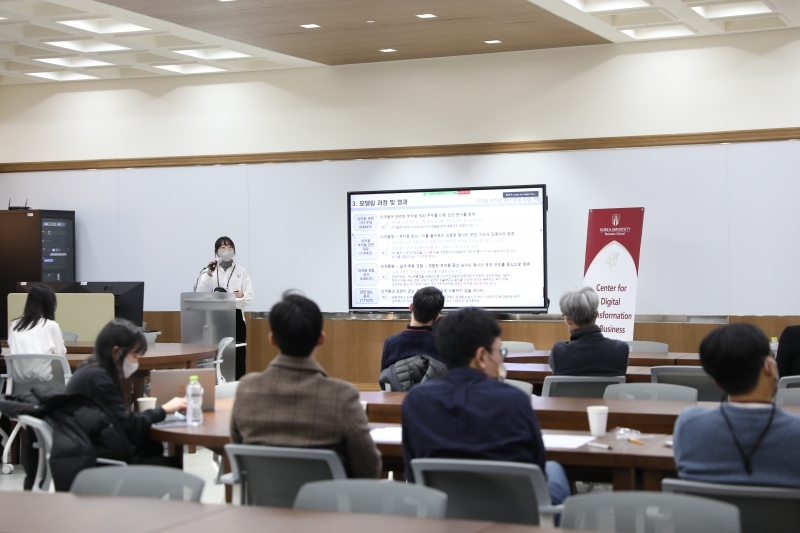
Team 8 (Kim Hyunkyung, Ryu Jiwon, Yoo Jiho) collaborated with Hanmi Pharmaceutical and presented about ‘Designing a model for detecting side effects through SNS crawling.’ This team trained a model that classified medicine side effect reports and constructed a process that derived insights. Team 8 emphasized that “unlike others, this research preprocessed information extracted from raw user review data on various medications.” Hanmi Pharmaceutical’s strategy team said, “We were worried for not being able to set a research topic in the first meeting. This research seems useful since there are marketing strategies that use mining techniques. We want to commend the researchers for their hard work and results.”
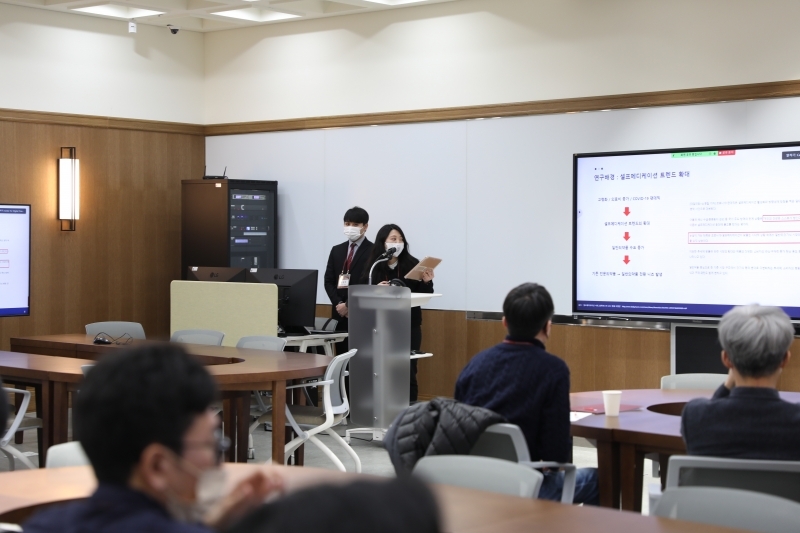
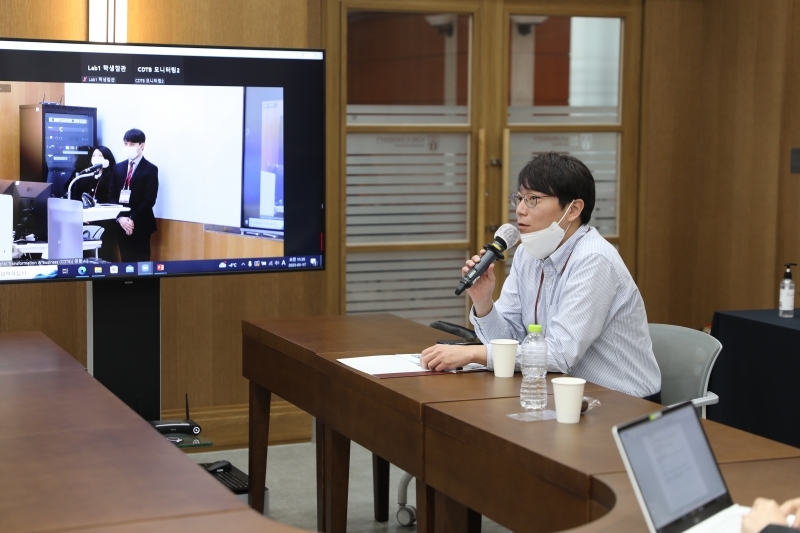
Team 9 (Ahn Yoojung, Choi Jonghyun) presented on the topic of ‘The effects of medicine reclassification policies on medicine sales.’ This team used a differences-in-differences method to analyze the effects of medicine reclassification policies and suggested strategies based on the results. A staff of Hanmi Pharmaceutical commented, “much of pharmaceutical data contained unfamiliar variables but the team handled it well. This research can be used in various categories other than medicine reclassification policies.”
All nine teams were accepted for the project. The organizer of the event, BA area chair Professor Baeho Kim said, “the Capstone Project is the core of MSBA. I am looking forward to seeing our students improve. This event was made possible by the hard work and effort of many people.” Professor Kim concluded the event by thanking those who participated.
Meanwhile, the award ceremony for the best presenting group of the MSBA Capstone Project was held on Wednesday, February 8. The best groups are △Group 1 (Hye-sun Kim, Hyo-eun Kim) △Group 7 (Ye-jin Kim, Hye-jin Kim, ZHENLAN JIN) and △Group 9 (Yu-jeong Ahn, Jong-hyun Choi).
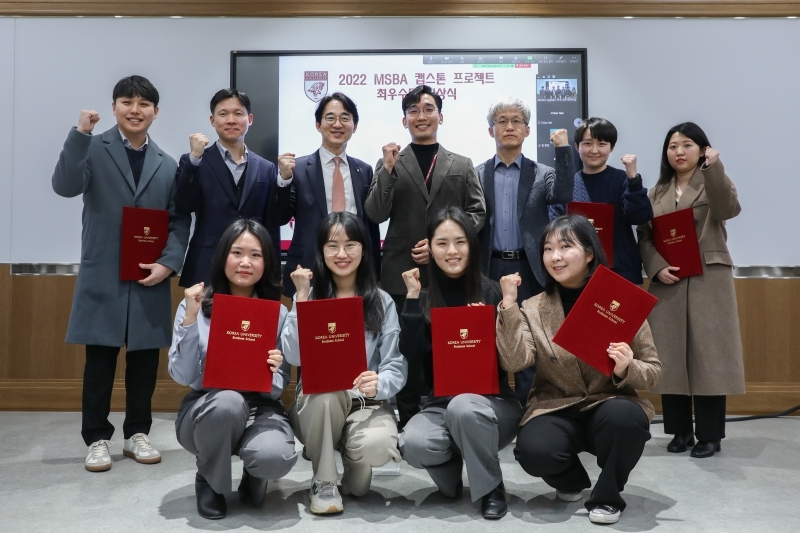
(Clockwise from top left) Jong-hyeon Choi, Professor Baeho Kim, Dean Sang Yong Kim, Area Chair Hyun Seok Lee, Professor Jae Hwan Kim, Ye-jin Kim, Yu-jeong Ahn, Hye-jin Kim, Hyo-eun Kim, ZHENLAN JIN, Hye-sun Kim


